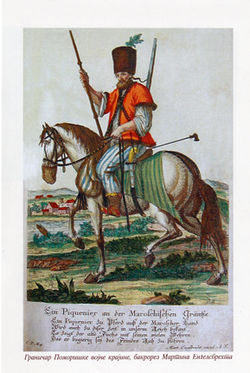- This information does not endorse any medicine as safe, effective, or approved for treating any patient or health condition
- cheapest Dalium order without prescription. You must talk with your health care provider for complete information about the risks and benefits of using rivastigmine patch
- buying online Accutane mail order without prescription
The Serbs: I Take My Stand
By Eugene Girin
Friday, 18 Feb 2011

I asked my father in '92 or '93 about who the “good guys” were in the Bosnian War (I had a keen interest in politics at that tender age). “The Serbs, of course! Who else? We [Jews] and they have the same enemies”. I advocated the Serb cause ever since.
I used to get in trouble in school for scoffing at the teachers' parroting of anti-Serb propaganda. I still remember how my “global history” professor blanched when I told him the only genocide in Bosnia was perpetrated by the Croatian Ustasa and their Bosnian Muslim sidekicks. The Serbophobic lies and lack of fair coverage (I didn't read Chronicles back then) reminded me of the horror stories I heard about Soviet propaganda. Defending the Serbs was my first brush with the behemoth of political correctness that transformed bloodthirsty brigands like the KLA into heroic martyrs and a “nation” established by apostasy into angelic victims of “ethnic cleansing”. I cheered every Serb victory and mourned every Serb defeat. The only time I was ashamed to be an American was when Clinton bombed Yugoslavia.
The Serbs have what the rest of the West was missing: courage. During the NATO assault on Yugoslavia, thousands of people stood on Belgrade bridges holding candles to prevent their destruction. Can anyone imagine people in London, Los Angeles, or Lisbon doing the same? In what other nation today, would psychiatrists, biologists, dissidents, and outlaws join forces to fight for their ancestral lands and the future of their people?
The Serbs carry this devotion to their motherland in the blood: from the mountain rebels who ambushed janissary patrols during Ottoman rule to the priests and school teachers who left their families to take up arms against the Ustasa killers - first in the 1940s then in the 1990s. Reviled as “war criminals”, the Bosnian Serbs re-fought the battles of Lepanto and Vienna against the modern day janissaries of the Bosniak army. Dragged before sham tribunals like the kangaroo court in the Hague, Serb leaders maintained their dignity in front of the Eurocrat nobodies.
Nowadays, the Serbs are in greater danger than they were in the 1990s. Boris Tadic's “Euro-Integrationist” (read: traitorous) regime has for all intents and purposes surrendered to the “international community.” Instead of defending its claim to Kosovo, Tadic conspired with the usual suspects of the EU and the State Department to surrender Kosovo to the drug runners and the organ stealers. In an embarrassing display of groveling Tadic denounced Russia (Serbia's oldest ally) to the State Department and turned a blind eye to the growing Muslim secessionist movement in Serbia's Sanjak region.
How is it possible that what the sanctions and the bombs did not accomplish is slowly being accomplished by the sweet poison of “Euro-integration” fed into the veins of Serbia by the “international community”? Why did a nation that resisted the pressure and vitriol of the whole world suddenly elect a leader who kneels at the feet of the Council of Europe? Perhaps the poison of globalism will only be cured when its institutions will collapse and a new Europe will rise from its rubble. Or maybe the poison is simply incurable.
During the war in Kosovo, my father and several other Soviet Jews led a pro-Serb online campaign in the Jewish media. A Serb priest from New Jersey wrote to my father telling him that he will dedicate prayers in his honor. My father responded that our family has always been a friend and supporter of the Serbs. It is the duty of everyone who cares about the West to support and honor the Serb nation. For if we do not, history and our descendants will never forgive us.
